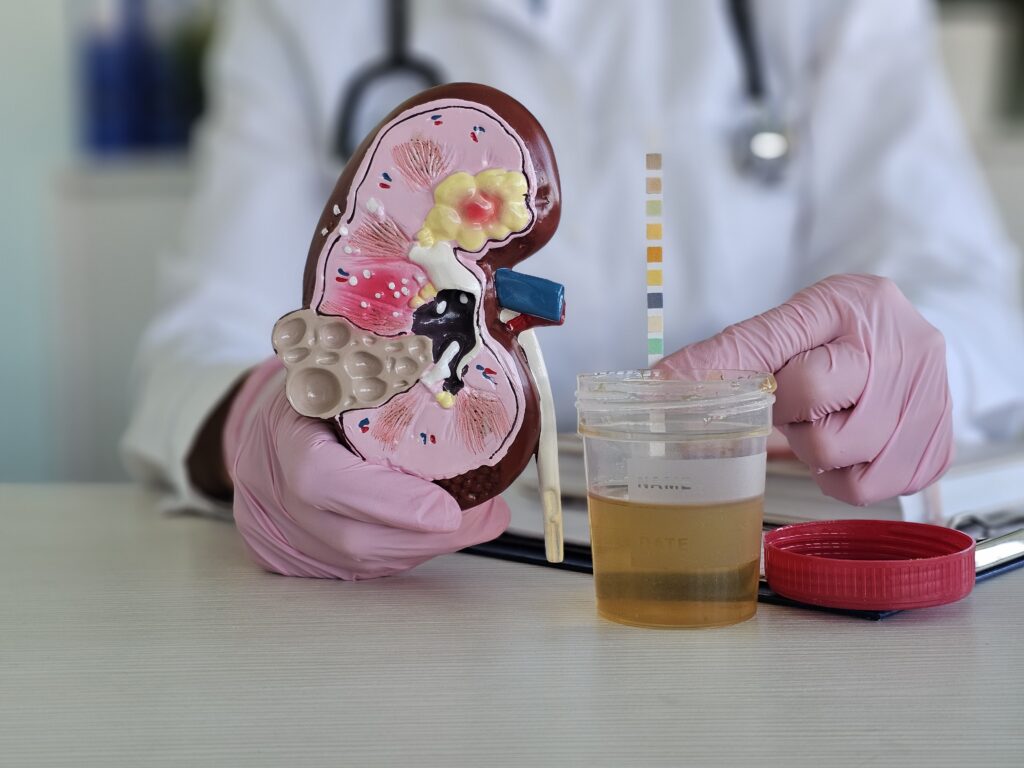What is Proteinuria?
Proteinuria means there is too much protein in your urine. Normally, your kidneys keep protein in your blood. However, when the kidneys are not working well, protein can leak into the urine. This is why proteinuria is often a sign of kidney problems. According to the CDC, healthy kidneys filter waste but keep important things like protein in your body. If you have proteinuria, you may not notice any changes at first. Still, it is important to understand what it means for your health.
Causes of Proteinuria
There are many reasons why someone might have protein in their urine. Sometimes, it is a temporary issue. Other times, it can point to a more serious health problem. Below are some common causes of proteinuria:
Because there are many possible protein in urine causes, it is important to talk to your doctor if you notice any changes.
Symptoms of Proteinuria
Often, proteinuria does not cause any symptoms at first. In fact, many people find out they have it during a routine urine test. However, as the amount of protein in urine increases, you may notice some signs of proteinuria. For example, you might see:
Sometimes, these symptoms can be mild. But if you notice them, it is important to seek medical advice. According to nephrology experts, proteinuria symptoms can be a sign that your kidneys need attention. Early treatment can help prevent further damage.
When to See a Doctor
Because proteinuria can be a sign of kidney problems, you should not ignore it. If you notice foamy urine or swelling, make an appointment with your doctor. Early testing can help find the cause and guide treatment. Your doctor may refer you to a nephrologist, a kidney specialist, for more tests and advice.
Summary
To sum up, proteinuria means there is too much protein in your urine. It can be caused by kidney disease, high blood pressure, diabetes, or other health issues. While you may not notice symptoms right away, signs like foamy urine or swelling should not be ignored. Early detection and treatment are important for your kidney health.
Consult a nephrologist for personalized advice if you notice symptoms of proteinuria.

